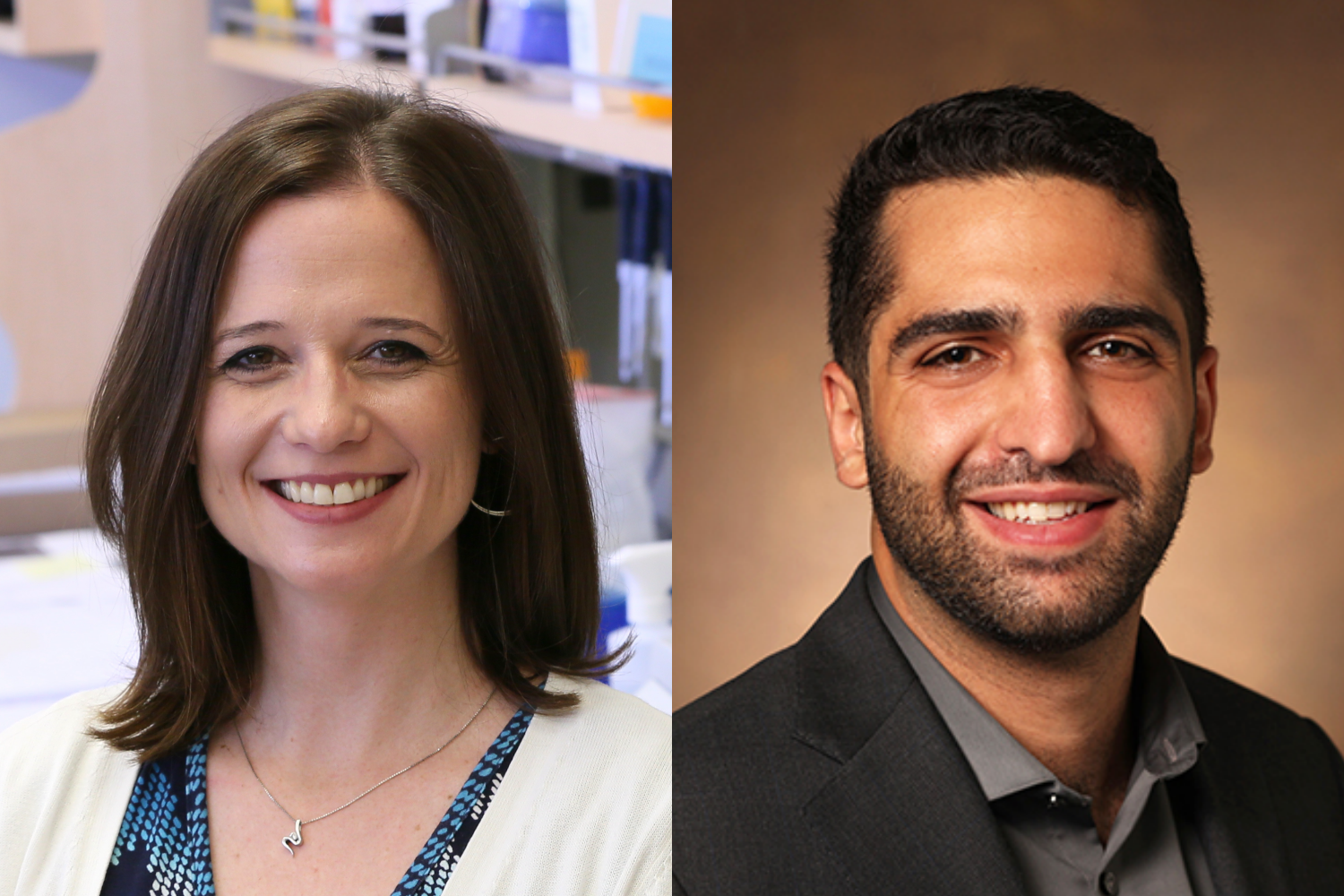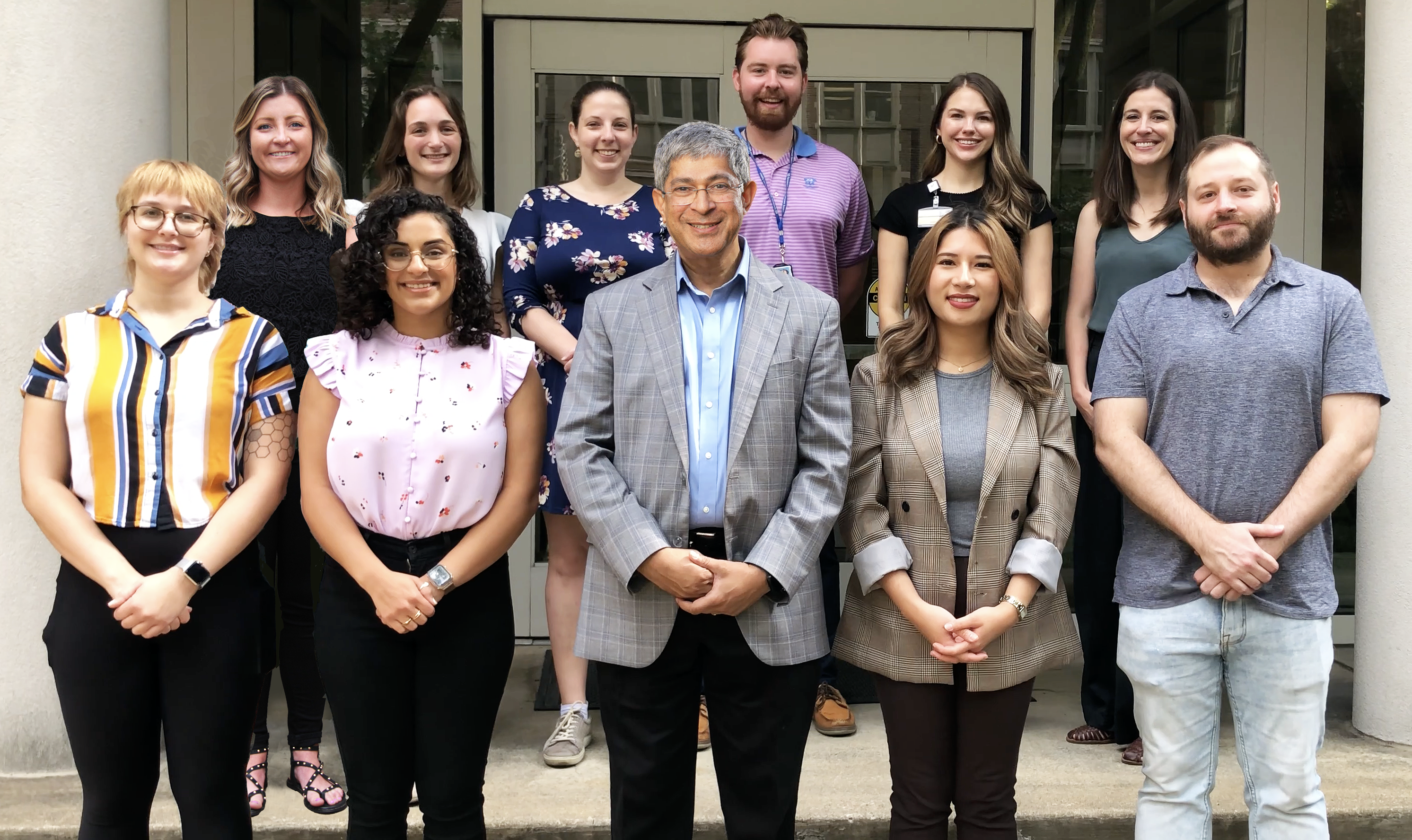Research, News & Discoveries
-

Neil Dani honored with prestigious 2023 Rita Allen Foundation Scholar award
In a landmark achievement, Neil Dani, an assistant professor in the Department of Cell and Developmental Biology, has been named a 2023 Rita Allen Foundation Scholar. The prestigious grant program supports early-career biomedical scholars who adopt bold and innovative approaches to fundamental… Read MoreAug. 24, 2023
-

Uddin receives second Phi Beta Psi national research award
Md. Jashim Uddin Md. Jashim Uddin, research associate professor of biochemistry, has received the Phi Beta Psi national research award for the second year in a row. The award will fund an ongoing project in which Uddin and colleagues are working to develop an improved cancer imaging platform… Read MoreAug. 24, 2023
-

Basic Sciences names Hodges, Siciliano as Dean’s Faculty Fellows
By Aaron Conley Emily Hodges, assistant professor of biochemistry, and Cody Siciliano, assistant professor of pharmacology, have been named Dean’s Faculty Fellows of the School of Medicine Basic Sciences. The Dean’s Faculty Fellows program, started in 2020, is designed to recognize the efforts of faculty in the early… Read MoreAug. 18, 2023
-

John Jumper, developer of AlphaFold, to present an Apex Lecture on August 30
John Jumper, Ph.D. To highlight major inflection points in research, the Vanderbilt School of Medicine Basic Sciences launched the Apex Lecture Series earlier this year, which allows the Basic Sciences community to engage with researchers from around the world who are influencing the trajectory of their fields. John… Read MoreAug. 8, 2023
-

2023 Dean’s Award winners announced
The Office of the Dean of Basic Sciences is proud to announce the 2023 recipients of the Dean’s Award for Exceptional Achievement in Graduate Studies. This year, 10 graduate students were recognized for their high academic and scientific achievement and for the originality, significance, and rigor of their dissertation research. Read MoreJul. 28, 2023
-

Arrojo e Drigo receives award for excellence in the field of islet research
Rafael Arrojo e Drigo, PhD, assistant professor of Molecular Physiology and Biophysics and a faculty member of the Vanderbilt Diabetes Research Center, received the inaugural Robert L. Sorenson Young Investigator Award from the Midwest Islet Club (MIC) in recognition of his research excellence and innovation in the field of islet… Read MoreJul. 7, 2023
-

Vanderbilt, VUMC investigators garner $1.2M Keck Foundation grant for groundbreaking genetic research
Chuck Sanders, vice dean of the Vanderbilt University School of Medicine Basic Sciences, Aileen M. Lange and Annie Mary Lyle Professor and professor of biochemistry, and Roy Zent, Thomas F. Frist Sr. Professor, professor of medicine and vice chair of research for… Read MoreJul. 7, 2023
-

Osheroff wins prestigious MILES Award
Neil Osheroff, John G. Coniglio Chair in Biochemistry and professor of biochemistry and medicine, received the Mentoring, Innovation, and Leadership in Educational Scholarship Award at the annual Asia Pacific Medical Education Conference that took place in May. Read MoreJul. 7, 2023
-

Study identifies key regulator of melanoma development
Vanderbilt investigators have revealed the mechanisms by which the chemokine receptor CXCR2, is associated with melanoma tumor formation and growth — a discovery that supports the continued development of drugs that inhibit the receptor’s activity. Ann Richmond, PhD, Ingram Professor of Cancer Biology and professor of Pharmacology, is internationally known… Read MoreJul. 6, 2023
-

Vanderbilt researchers envision the potential to grow new lungs
Using a four-dimensional microscope that allows them to watch a tissue putting itself together, researchers at Vanderbilt University Medical Center have achieved a rare feat in science — they have shattered a long-standing dogma about how the lung develops. Their tour de force raises the possibility that one day scientists will… Read MoreJul. 6, 2023